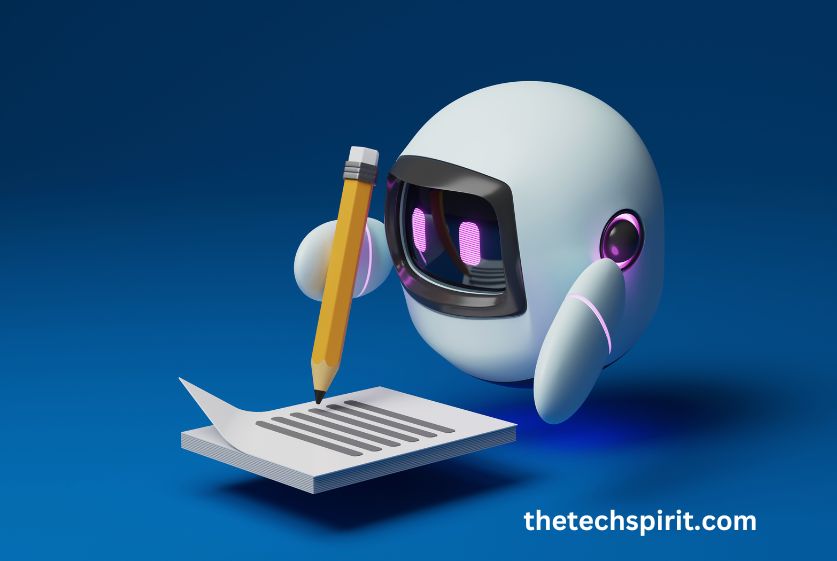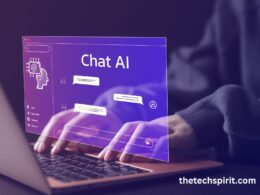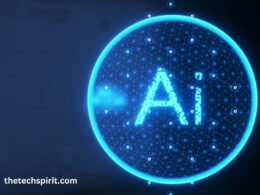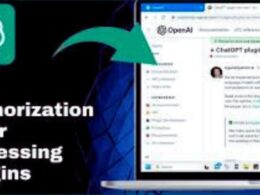Conversational AI chatbots and digital assistants like Character AI have exploded in popularity in recent years. Concerns around ethics, transparency, and costs have led many to explore open-source alternatives.
I will provide an overview of leading open-source conversational AI projects, their capabilities, and how businesses can responsibly utilize them as lower-cost Character AI alternatives.
Table of Contents
Rise in Popularity of AI Chatbots and Assistants
Chatbots and virtual assistants like Siri, Alexa, and Character AI have become ubiquitous in daily life. More companies are utilizing conversational AI to automate customer service, offer personalized recommendations, and act as digital helpers. The global chatbot market is projected to reach $19.6 billion by 2027 as demand increases.
Driving this growth is the ability of chatbots to understand natural language, hold knowledgeable conversations, and develop almost human-like personalities. Character AI in particular has impressed users with its empathy, creativity, and reasoning abilities.
Issues around vendor lock-in, lack of transparency, high costs, and potential bias have led some to explore alternatives. This is where open-source conversational AI models come in.
Drawbacks and Limitations of Proprietary AI like Character AI
While proprietary solutions like Character AI have advanced capabilities, they also come with some key drawbacks:
- Lack of customization: Proprietary systems offer little ability to customize or tweak the underlying AI model.
- IN transparency: The inner workings are opaque with limited insights into how responses are generated.
- Ethical risks: Potential issues around bias, safety, and responsible AI can go unchecked.
- High costs: Pricing plans for enterprise use can get expensive, especially at scale.
These limitations have motivated tech companies and researchers to explore open-source conversational AI alternatives.
Why Consider Open-Source Character AI Alternative?
Open-source conversational AI offers some distinct advantages over closed models like Character AI:

Customization and Control
With access to the source code, developers can fine-tune models for their specific needs and use cases. This enables closer integration with existing systems and workflows.
Transparency and Ethics
Open-source code promotes transparency into the model architecture, training data, and other mechanics under the hood. This allows closer evaluation of ethical risks.
Cost Savings
Leveraging open-source conversation AI can significantly reduce licensing, deployment, and maintenance costs at scale. For these reasons, open-source chatbots present a compelling alternative to proprietary solutions.
Overview of Leading Open-Source Conversational AI Projects
Several notable open-source conversational AI projects promise capabilities rivaling commercial solutions like Character AI:
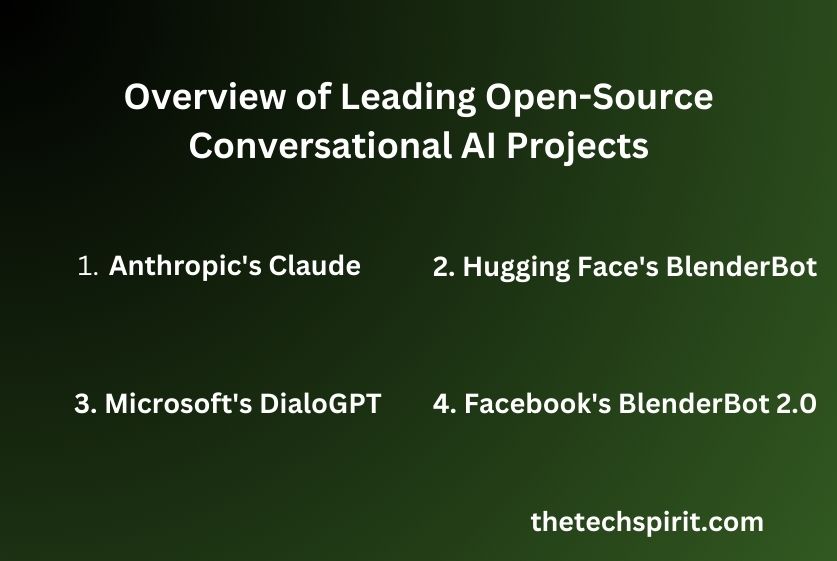
Anthropic’s Claude
Claude is an empathetic chatbot focused on harmless, honest, and helpful dialogue. Developed by AI safety company Anthropic, Claude is trained in human conversations to improve personality and relatability.
Hugging Face’s BlenderBot
Backed by hundreds of researchers, Blender Bot can converse naturally on a wide range of topics while avoiding unsafe responses. It continues to improve through machine learning.
Facebook’s BlenderBot 2.0
Facebook AI Research’s latest iteration can chat more naturally, admit mistakes, reject inappropriate requests, and improve through online feedback.
Microsoft’s DialoGPT
DialoGPT from Microsoft Research leverages large language models to conduct knowledgeable, multi-turn conversations across many subjects. These leading projects aim to match capabilities offered by commercial solutions like Character AI while remaining transparent and open-source.
Key Capabilities of Open-Source Chatbots
To create human-like conversations, open-source chatbots leverage key AI capabilities:
Natural Language Understanding
They comprehend complex language, analyze sentence structure and meaning, and determine appropriate responses.
Knowledge Retrieval
Open-source models can ingest huge volumes of data to converse knowledgeably on nearly any topic.
Personality and Empathy
Training in human conversations gives chatbots relatable personalities with emotional intelligence. With sufficient training data and computing power, open-source bots can achieve the nuance and depth of proprietary offerings.
How Businesses Can Utilize Open-Source AI Chatbots
Here are some valuable applications of open-source conversational AI for businesses:
Customer Service and Support
Chatbots can resolve common customer queries, route issues, and operate as always available virtual agents.
Marketing and Lead Generation
Bots can qualify leads, recommend products, and engage visitors to boost conversions.
Market Research and Surveys
Automated conversations can gain customer feedback, preferences, and insights at scale. The benefits range from reduced costs and higher efficiency to improved CX and new revenue opportunities.
Implementing Responsibly and Mitigating Risks
While the transparency of open-source AI assists in responsible use, some key steps must be taken:

Evaluating for Bias
Continuously test bots for demographic biases and tweak model architecture as needed.
Maintaining Transparency
Document conversational design, data sources, and development protocols.
Monitoring Conversations
Check interactions for signs of unsafe or problematic responses. With the right precautions, open-source chatbots can be powerful business tools while upholding ethical principles.
The Future of Open-Source Conversational AI
Rapid advances in natural language processing will spur open-source projects to achieve breakthroughs in capable and relatable dialogue. With prudent development, they offer an exciting alternative to closed models like Character AI. The future points to open platforms enhancing customization, transparency, and innovation in conversational AI.
Conclusion
Open-source conversational AI presents immense possibilities as an alternative to proprietary chatbots. With transparent development and responsible implementation, businesses can harness advanced yet ethical chatbots to transform customer and employee experiences.
Exciting times lie ahead as open platforms drive innovations in natural, knowledgeable, and empathetic dialogue between humans and machines.
FAQs
What are some advantages of open-source vs Character AI?
Open-source conversational AI offers more transparency, and customizability, lower long-term costs, and mitigated ethical risks compared to closed proprietary platforms like Character AI.
What capabilities do open-source chatbots have?
Leading open-source chatbots leverage natural language processing, vast knowledge bases, and empathy training to hold nuanced conversations like humans.
What risks come with open-source conversational AI?
Potential risks include bias, safety issues, and misuse. Proactive monitoring, testing, and documentation are key to responsible implementation.
How can businesses use open-source chatbots?
Use cases include customer service, lead generation, market research, surveys, virtual assistants, and more. They can reduce costs and improve experiences.
What does the future hold for open-source conversational AI?
As research advances, open-source chatbots will become even more natural, knowledgeable, and capable. Openness will spur customization and responsible innovation.





